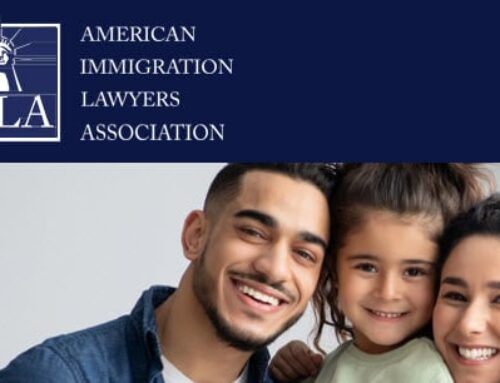USCIS Form and Policy Updates Remove Barriers to Naturalization for Applicants with Disabilities
On 10/19/2022, U.S. Citizenship and Immigration Services (USCIS) announced an updated policy with the revision of Form N-648, Medical Certification for Disability Exceptions. The USCIS policy manual clarifies how medical professionals can properly complete the new version of Form N-648, Medical Certification for Disability Exceptions, and request oath waivers based on physical or developmental disability or mental impairment.
Presidential Administration Goal to Remove Barriers
From the onset, the Biden administration goal focused on the goal of removing barriers and restoring faith to our legal immigration system as well as strengthening integration and inclusion efforts for New Americans. Further, under Executive Order 13985, Advancing Racial and Equity and Support for Underserved Communities Through the Federal Government, the Federal Government must pursue a comprehensive approach to advancing equity for all, including people of color and others who have been historically underserved, marginalized, and adversely affected by persistent poverty and inequality.
New Form 648
Form N-648 has been shortened and simplified, and new telehealth guidelines further remove barriers for applicants and medical professionals. The form revisions are also as follows:
- Eliminates content related to questions that have been removed from the Form N-648 including:
- dates of diagnosis and when the disability or impairment began;
- description of severity of each disability or impairment;
- effects on the applicant’s daily life; and
- doctorpatient relationship.
- USCIS may accept a Form N-648 submitted after the naturalization application is filed
- Oath waiver requests allow submission of either Form N-648 or a written request from an authorized medical professional
Changes
In 1994, Congress enacted legislation providing an exception to the English and civics requirements for naturalization applicants who cannot meet the requirements because of a physical or developmental disability or mental impairment. USCIS is now creating a new Section E (Scope of Medical Examination) with a new italicized subheading “Telehealth Examination”.
Previously, the exception applied to the English and civics requirements for naturalization applicants who cannot meet the requirements because of a physical or developmental disability or mental impairment.
The new revisions are a welcome change and will make many immigrants previously unable to obtain U.S. citizenship, the ability to achieve the American Dream.




